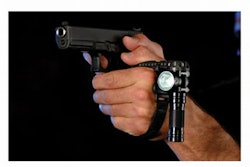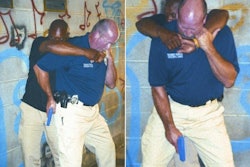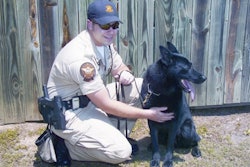Back in 1994, Matthew Musladin showed up at the San Jose, Calif., home of his estranged wife’s mother to pick up his son. Words were exchanged, and he threw his wife, Pamela Musladin, to the ground. She called for help. Her boyfriend, Thomas Allen Studer, and her brother came to her aid.
Matthew Musladin then pulled a .45 caliber pistol out of his car and started firing. Studer was hit in the back by one round. He retreated into the garage and tried to hide under a truck. Musladin followed him and shot him in the head. Studer died. Pamela Musladin escaped, and the San Jose cops arrested Matthew Musladin after a high-speed chase on U.S. 101.
Matthew Musladin contended that he thought Studer was armed. His attorneys argued that both Studer and Pamela Musladin were drug users and Matthew Musladin feared for his life, which is why he retrieved a hand cannon from his car and started shooting at unarmed people, including the mother of his son.
The jury didn’t buy it. In 1995, they convicted Matthew Musladin of first-degree murder and attempted murder. He was sentenced to 32 to life.
That should have been the end of the story. But Matthew Musladin is one of many lucky criminals who has benefited from the absurd judicial activism of the U.S. 9th Circuit Court of Appeals.
The court, which has never met a criminal who wasn’t somehow deprived of his constitutional rights, has reversed Musladin’s conviction. The reason: Studer’s little brother and his parents sat in court wearing buttons similar to political campaign buttons that bore the image of their slain loved one, and the bad, old trial judge who presided over the case did not order the aggrieved family to take them off.
Appeals judge Stephen Reinhardt (a 75-year-old Carter appointee) wrote in his opinion, “The buttons essentially ‘argue’ that Studer was the innocent party and that the defendant was necessarily guilty….A reasonable jurist would be compelled to conclude that the buttons worn by Studer’s family members conveyed the message that the defendant was guilty.”
The trial judge and a California appeals court saw no harm in the Studers’ show of love for their son and brother. They rightly argued that the prosecution could have shown pictures of the victim to the jury and that, if he had lived, Thomas Studer could have testified against his shooter.
No soap with the three-judge panel of 9th Circuit judges that ruled on the Musladin case. They decided 2-1 to overturn Musladin’s conviction. So, unless the U.S. Supreme Court overrules the 9th Circuit’s decision, San Jose prosecutors will soon have to retry a 12-year-old case, and the Studer family will once again have to relive the nightmare of their loss.
The good news here is that the U.S. Supreme Court will likely overrule the 9th Circuit decision. They now overrule 9th Circuit decisions so often that it’s become a habit.
And with good reason. The U.S. 9th Circuit Court of Appeals is a hyper-liberal clown show. It is a 26-member court headquartered in San Francisco that covers cases in the entire West, from Montana to the Northern Marianas Commonwealth. Just counting the land mass, that’s a massive area. It’s also a lot of population. There have been numerous calls to divide the court into two, but they have been defeated by political maneuvers.
The result is that the 9th Circuit is the largest appeals court in the United States. It’s so large and so unwieldy that it’s extremely rare for all 26 judges to hear a case. Most cases are heard by three-judge panels. For a case to be heard by the entire body, 14 judges have to object to an opinion. In the Musladin case, seven judges threw flags, but that wasn’t enough to reverse the play.
To say that the 9th Circuit’s liberal activism is out of control is a major understatement. Clinton appointed 13 of its judges and Carter appointed nine of them. They will sit for life.
Famously, this is the court that ruled against the Pledge of Allegiance. But the Musladin case is even more indicative of the 9th Circuit’s brand of judicial activism. If this ruling stands, will it mean that grieving families will not be allowed in the courtroom during murder cases? After all, if they cry over the loss of their loved one, that may prejudice the jury.











